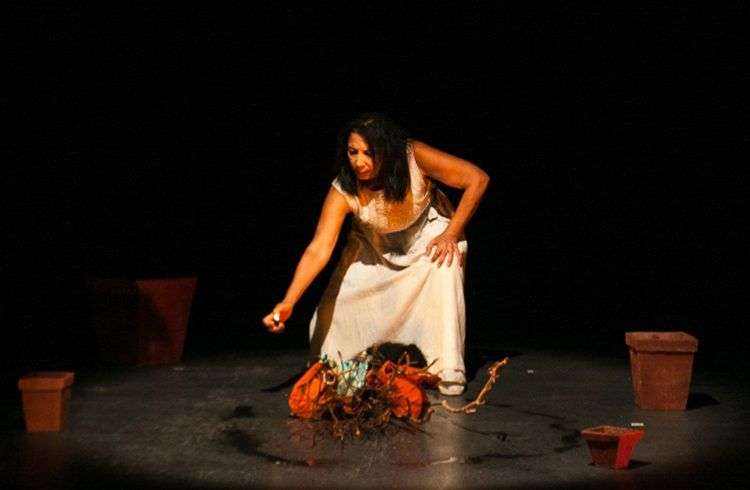There are many ways to have courage. As there are many ways of being poor. Tarecos para Irina, a monologue the El Pálpito theater presents says poor when it means victim; and courage when it means fighting.
People who have been in some sense a victim, need to rebel against it. They need to rebel against injustice, against those with power, whether the power is. No more turning the other cheek, lowering his head, “it doesn’t matter, show a good face.”Do not! Even, it is enough to resurrect our misfortunes; and no more-exotic wonder of our culture- doing it like doing a conga.
We must mourn, grieve, and then fight. Laughter is a shield that leads to inertia. And there, too, to be recognized. A victim is not necessarily someone without guilt: the courage of the poor usually has limits. Because the poor often blames others for his misery, and this gives others an omnipotent condition, which they maybe don’t even dream they have.
Tarecos para Irina questions like few contemporary works the elusive negligent parties of Cuban society. There are philosophical conflicts in the script by Maikel Chávez and strong reflections, underneath, on complex terms such as free will and freedom. But it is not a freedom that others have stolen, but one that we dropped here, in the everyday life of a Cuba that we have lived in for more than half a century. For even within the Island we are human beings succumb under the intrinsic anthropologically miseries, you know, jealousy, selfishness, laziness. Also within the silhouette of our shores … we are victims and victimizers.
In the work the world is again exposed as a reflection of the social context. But the courageous proposal is that the script by Chavez transits lines seldom touched. It doesn’t want to repeat canons or schemes; not to laugh at our misfortunes, but something more consistent: wailing. Because they are there. Because they hurt.
Norah Hamze (we’ve seen her in her character of Nana of Uncle Vanya, Chekhov play which Carlos Celdran adapted for Argos Teatro), gets on stage with her hardships-own, and the character she plays to what extent are the same ? – and reaches deep with her loneliness and victimhood. Those with power have decided on it. They have decided on a career as an actress; about her life. Somehow they took her off the stage to place her among four dried plants, and have decided she waters them forever. Metaphor crumbled, who does not feel identified with that? Who has not ever been a victim? Who is not, in any sense, right now?
And the poor are unjust too. They also make mistakes. And when the poor make mistakes, what is the meaning of life? The work is full of inter-textuality. As the ode to Sergio of Memories of Underdevelopment, as Cuban intellectuals who lived between 71 and 75, Irina suffered the luck rather misfortune of others deciding her fate for her. Those others were in power, they could, and did, and the characters who were their victims were left without direction in their lives. Except that sometimes they are not characters, but people.
To some extent, it is rooted among Cubans laughing at our misfortunes; it is culture. But no one wants to be a Tareco (piece of junk). Nobody wants that, as an inanimate object, be moved at will. So the poor need the courage to even get out of their idiosyncrasies. He needs courage to not laugh (because it’s not funny!) courage to rise above the apathy and neglect. Even if it’s his own.










